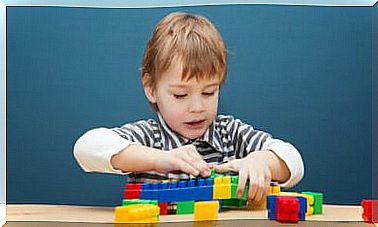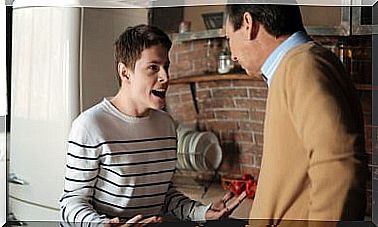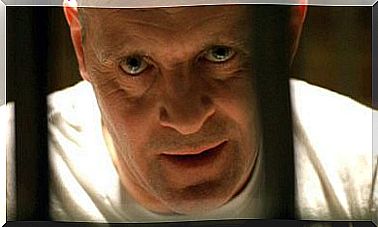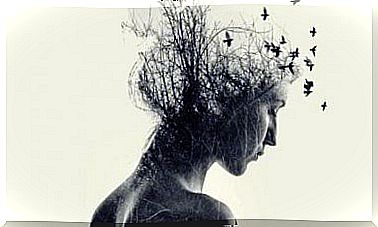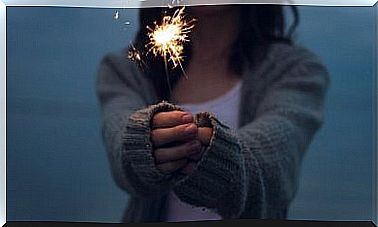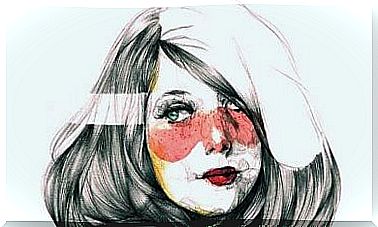Childhood Trauma And Adult Depression
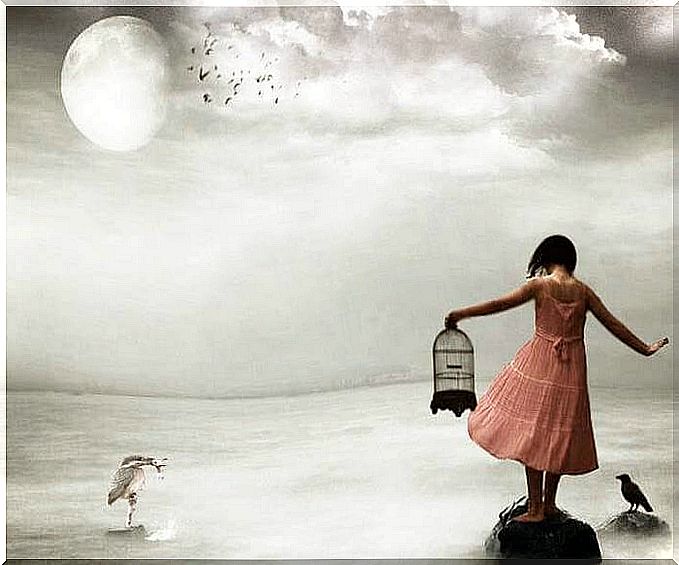
No stage is more intense, wonderful and vulnerable at the same time, than our childhood. Those first experiences mark forever not only much of the course of our life, but also the vision we have of it. The bond that we establish with our caregivers, with those parents who guide, care for and protect us, will offer us the pillars of our development to grow safely and autonomously. For this reason, it is so important to have a good childhood, because if traumas appear at this stage, they could mark our adult life.
But if something fails, if the cliff of violence, misfortune or chance appears in our life cutting the course of that childhood, the mark will remain there forever. It is a fact, a reality. And as children, as people who are not yet capable of not only defending ourselves, but also not understanding why evil or tragedy exists, we will have to digest it with all its difficulty and gravity.
Psychiatrists call these situations “early stress”. These are events caused by physical or emotional trauma that will largely alter the course of our development and our maturity . The wound will remain in our brain, that serious peak of stress and suffering leaves its injury. So in adulthood we have a greater risk of developing some type of depression.
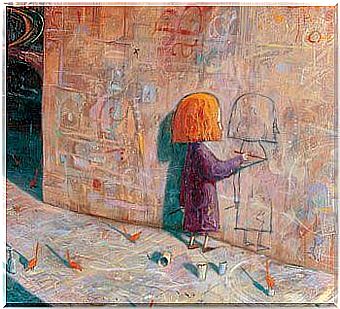
Lack of affection in childhood, one of the biggest causes of depression
Sometimes we don’t need to go to such regrettable extremes as child abuse or maltreatment. Many times, those children who grow up without family roots or with parents who have not known, or have not wanted to strengthen that essential bond with their children, causes them to reach maturity with many deficiencies, with many faults. This can create different types of trauma for them. One of the most widespread consequences is depression. The lack of affection and affection have prevented the child from developing a healthy self-esteem and, in this way,
A healthy, happy and whole childhood makes the child grow up knowing that he is loved. That each of his steps, his decisions and his failures, will have the unconditional and unique support that is his family . The development of your self-esteem will go hand in hand with the affection of yours. His self-concept will also be positive, because it is the reflection of what he has always found up to now.
But if he only finds emptiness, contempt and reproach, the child will grow up not only with a marked insecurity, but also with a certain resentment and even distrust. How to do it? If those who should have offered you unconditional support and affection only gave you coldness and rudeness, it is difficult for you to reach a healthy union with another person. Let him distrust and fear. Thus, in this way, a distrustful adult can be created, incapable of believing in himself and in others. Fearful when making decisions and even full of resentment and anger for no apparent reason.
Overcoming a difficult childhood
Psychiatrists speak of “biological vulnerability.” That is, all those traumatic or negative experiences from the past have been embedded in our experience and also at the brain level. High rates of stress shape and change many of our deepest structures, all of which make us more fragile. People who are more prone to depression in adulthood.
But now, does this mean that all those who have suffered trauma in childhood, are necessarily going to suffer from depression? The answer is no.
Each of us cope with our traumatic past in a different way. For some people, such events may be a shock to overcome and fight for every day. Something to assimilate, accept and face so that life gives you a new opportunity, and be happy again.
On the other hand, for other people that biological and emotional predisposition will continue to weigh too heavily . Not only is it going to be a lingering memory, but it can influence the way you relate to the world. One way of relating can lead the individual to have an introverted, cold and distant life. An adult stage weighed down by affective deficiencies that can lead to chronic depressive symptoms, such as dysthymia. The adult may come to think that he does not deserve to be happy and, in this way, he will not give himself the opportunity to be happy … or to try.
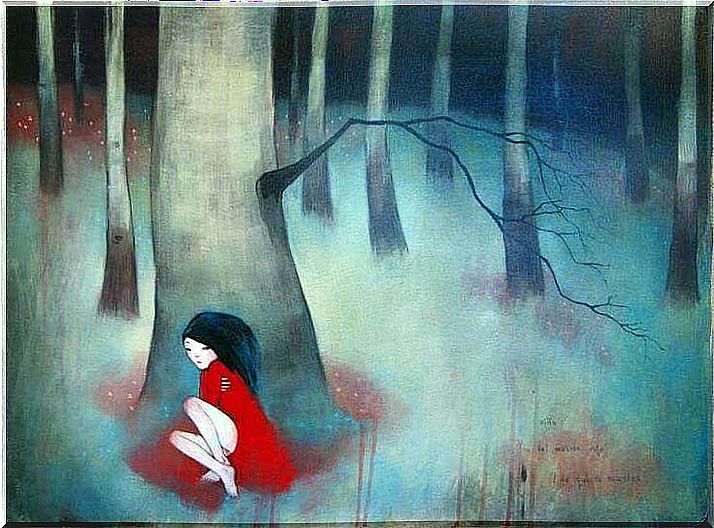
Other consequences
They can be people who have lost confidence with themselves and with everything around them. It is difficult for them to maintain friendships and even emotional relationships. They demand affection, but are unable to accept it because they continue to fear being betrayed, being hurt. Despite needing affection, deep down, they believe that they do not deserve it and they reject it. They are afraid of the signs of love from others and do not know very well how to deal with them.
They are profiles where a type of chronic anxiety, a hypersensitivity and an emotional vulnerability with which to fight every day can be implicit. Happiness in these cases has a high price, so how to deal with it? Obviously, with effort, will and a lot of social support.
Final reflection
Given all these realities, we can only remember the importance of continuing to protect children. Never think of a child as a miniature adult. A child is a person hungry for positive emotions, in need of experiences full of unconditional affection, words and bonds. That is why it is so important to give them love, affection and affection. Give them their space of autonomy as they grow but knowing that they continue to have the support of their parents.
A child is not an adult who can understand why other adults might treat him badly. Nor can he defend himself. What happens in those ages, will mark it forever. Do not forget. Always take care of the little ones. If you are the one who suffered a difficult childhood, remember that happiness is not forbidden for anyone, and that it is worth accepting, overcoming and living again .
Images courtesy of Lucy Campbell
